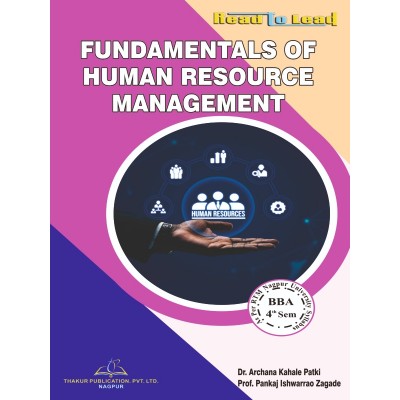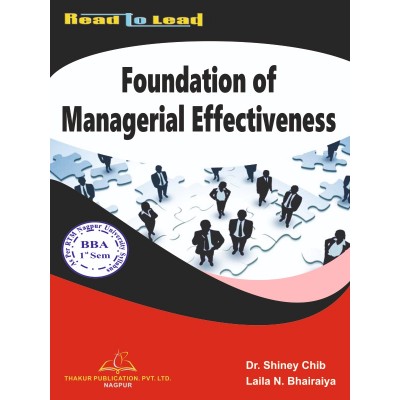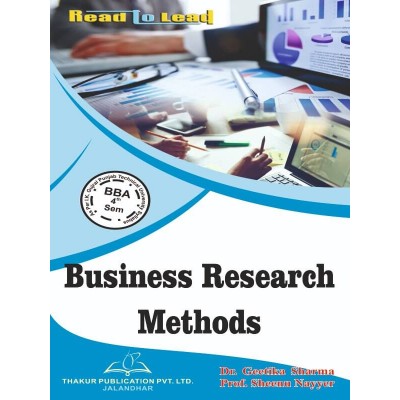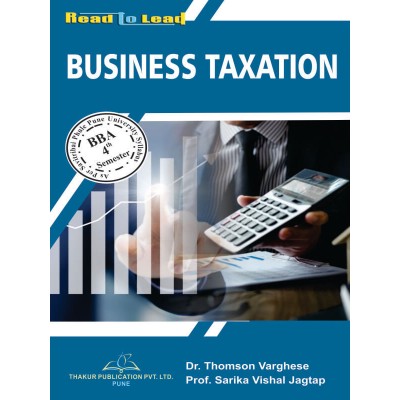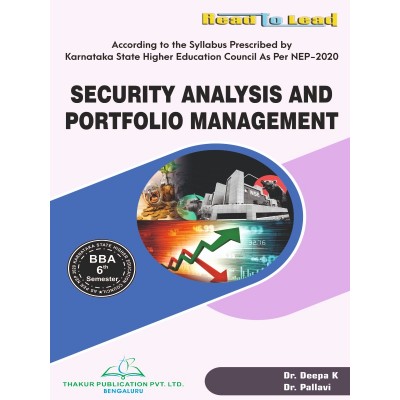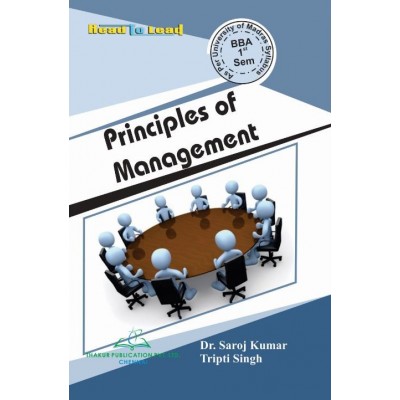Categories
- Pharmacy
-
Nursing
-
MBA
-
BBA
- U.P. State University
- Veer Bahadur Singh Purvanchal University, Jaunpur
- Chaudhary Charan Singh University, Meerut
- Dr. Bhimrao Ambedkar University, Agra
- Chhatrapati Shahu Ji Maharaj University, Kanpur
- Mahatma Jyotiba Phule Rohilkhand University, Bareilly
- Mahatma Gandhi Kashi Vidyapith, Varanasi
- Dr. Ram Manohar Lohia Avadh University, Ayodhya
- Deen Dayal Upadhyaya Gorakhpur University
- Prof. Rajendra Singh (Rajju Bhaiya) University, Prayagraj
- Raja Mahendra Pratap Singh University Aligrah
-
BCA
- UP State Universities
- University of Pune
- I.K.Gujral Punjab Technical University (PTU)
- University of Rajasthan
- Rashtrasant Tukadoji Maharaj Nagpur University
- Uttar Pradesh NEP2020
- University of Rajasthan ,Jaipur (According to NEP-2020)
- BCCA (B. Com - Computer Science)
- Haryana
- West Bengal
- BBA (CA)
- PUNE BCA (Sci,Commerce)/B.Com (CA)
- Dr. A. P. J. Abdul Kalam Technical University, Lucknow ( AKTU )
- MCA
-
B Ed
- Lucknow University B.Ed Books
- Chaudhary Charan Singh University/Maa Shakambhari University, Saharanpur
- Dr Bhim Rao Ambedkar University, Agra
- Mahatma Gandhi Kashi Vidyapeeth, Varanasi
- Chhatrapati Shahu Ji Maharaj University
- Prof. Rajendra Singh (Rajju Bhaiya) University, Prayagraj (PRSU)
- Mahatma Jyotiba Phule Rohilkhand University(Mjpru), Bareilly
- Dr. Ram Manohar Lohia Avadh University, Ayodhya
- Bundelkhand University, Jhansi
- B.A,B.ed
- B.Sc, B.ed
- Deen Dayal Upadhyaya Gorakhpur University
- Veer Bahadur Purvanchal University (VBPU)
- Maharaja Suhel Dev State University ,Azamgarh (MSDSU)
- Raja Mahendra Pratap Singh State University, Aligarh (RMPSSU)
- Barkatullah Vishwavidyalaya (Bhopal)
- Jiwaji University (Gwalior)
- Vikram University (Ujjain)
- Dr. Harisingh Gour University (Sagar)
- Devi Ahilya Vishwavidyalaya (Indore)
- Rani Durgavati Vishwavidyalaya (Jabalpur)
- Awadhesh Pratap Singh University (Rewa)
- Maharaja Chhatrasal Bundelkhand University (Chhatarpur)
- D. EL. ED
- TET
-
B Com
-
B Sc
- B.Sc. U.P. State Universities Common Syllabus NEP
- Veer Bahadur Singh Purvanchal University, Jaunpur
- University of Lucknow
- Chaudhary Charan Singh University, Meerut
- Madhya Pradesh
- Chhatrapati Shahu Ji Maharaj University, Kanpur
- Dr. Bhimrao Ambedkar University, Agra
- Mahatma Gandhi Kashi Vidyapith, Varanasi
- DEEN DAYAL UPADHYAYA GORAKHPUR UNIVERSITY
- Prof. Rajendra Singh (Rajju Bhaiya) University, Prayagraj
- Dr. Ram Manohar Lohia Avadh University, Ayodhya
- Mahatma Jyotiba Phule Rohilkhand University, Bareilly
- Uttarakhand State Universities
- B.Sc. Bihar Universities Common Syllabus NEP
- University of Rajasthan (Jaipur)
- Haryana
-
Bachelor of Arts [B.A.]
- B.A. Of U.P. State Universities Common Syllabus NEP
- Veer Bahadur Singh Purvanchal University, Jaunpur
- University of Lucknow
- Chaudhary Charan Singh University, Meerut
- Chhatrapati Shahu Ji Maharaj University, Kanpur
- Dr. Bhimrao Ambedkar University, Agra
- Mahatma Gandhi Kashi Vidyapith, Varanasi
- Deen Dayal Upadhyaya Gorakhpur University
- Prof. Rajendra Singh (Rajju Bhaiya) University, Prayagraj
- Dr. Ram Manohar Lohia Avadh University, Ayodhya
- Mahatma Jyotiba Phule Rohilkhand University, Bareilly
- Madhya Pradesh
- Uttarakhand
- Bihar
- University of Rajasthan (Jaipur Syllabus as Per NEP2020)
- Haryana NEP-2020
- B Tech
- LLB
- SWA Education
Organisational Behaviour Book for BBA 2nd Semester Lucknow University
Author :- Dr. Monika Yagnik, Dr. Mayank Singh
ISBN :- 978-93-5480-512-7
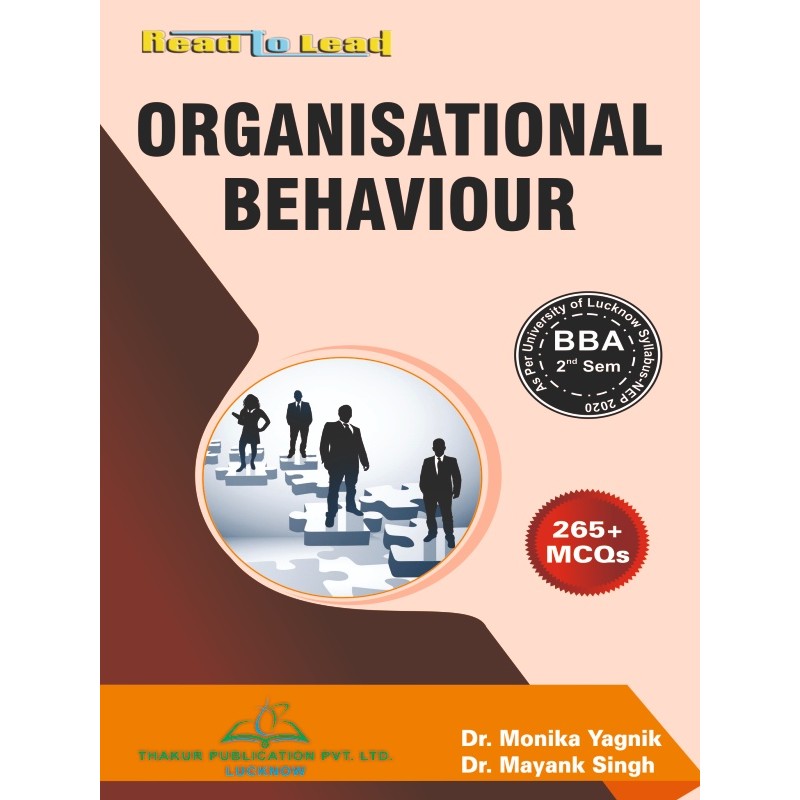
Author :- Dr. Monika Yagnik, Dr. Mayank Singh
ISBN :- 978-93-5480-512-7
Tax excluded
|
Unit 1: Introduction to OB |
||
|
1.1. |
Organisational Behaviour (OB) |
13 |
|
1.1.1. |
Introduction |
13 |
|
1.1.2. |
Nature of OB |
14 |
|
1.1.3. |
Scope of OB |
15 |
|
1.1.4. |
Organisation Goals/Objectives of OB |
16 |
|
1.1.5. |
Models of OB |
18 |
|
1.1.6. |
Foundations of OB |
21 |
|
1.1.7. |
Levels of OB |
23 |
|
1.1.8. |
Determinants of OB |
24 |
|
1.1.9. |
Contributing Disciplines to OB |
25 |
|
1.1.10. |
Challenges and Opportunities for OB |
26 |
|
1.1.11. |
Importance of OB |
28 |
|
1.2. |
Global and Cultural Diversity |
29 |
|
1.2.1. |
Introduction |
29 |
|
1.2.2. |
Factors Constituting Global and Cultural Diversity |
31 |
|
1.2.3. |
Impact of Global and Cultural Diversity on OB |
34 |
|
1.2.4. |
Benefits of Global and Cultural Diversity to Organisation |
36 |
|
1.2.5. |
Steps in Managing Global and Cultural Diversity |
37 |
|
1.2.6. |
Organisational Behaviour Responses to Global & Cultural Diversity |
38 |
|
1.2.7. |
Challenges at International Level |
40 |
|
1.3. |
Exercise |
43 |
|
|
|
|
|
Unit 2: Individual Behaviour, Personality, Perception & Motivation |
||
|
2.1. |
Individual Behaviour |
44 |
|
2.1.1. |
Concept of Individual Behaviour |
44 |
|
2.1.2. |
Nature of Individual Behaviour |
44 |
|
2.1.3. |
Need of Understanding Individual Behaviour |
45 |
|
2.1.4. |
Models of Individual Behaviour |
46 |
|
2.2. |
Personality |
48 |
|
2.2.1. |
Meaning and Definition of Personality |
48 |
|
2.2.2. |
Nature of Personality |
49 |
|
2.2.3. |
Types of Personalities |
50 |
|
2.2.4. |
Major Personality Attributes Influencing Organisational Behaviour |
51 |
|
2.2.5. |
Importance of Personality |
54 |
|
2.3. |
Perception |
55 |
|
2.3.1. |
Meaning and Definition of Perception |
55 |
|
2.3.2. |
Nature of Perception |
56 |
|
2.3.3. |
Importance of Perception |
56 |
|
2.3.4. |
Components of Perception |
57 |
|
2.3.5. |
Perceptual Process |
59 |
|
2.3.6. |
Errors in Perception |
62 |
|
2.3.7. |
Role of Perception in Individual Decision-Making |
64 |
|
2.4. |
Learning |
66 |
|
2.4.1. |
Meaning and Definition of Learning |
66 |
|
2.4.2. |
Characteristics of Learning |
67 |
|
2.4.3. |
Learning Process |
67 |
|
2.4.4. |
Principles of Learning |
69 |
|
2.4.5. |
Significance of Learning |
71 |
|
2.5. |
Motivation |
71 |
|
2.5.1. |
Meaning and Definition of Motivation |
71 |
|
2.5.2. |
Nature of Motivation |
72 |
|
2.5.3. |
Elements of Motivation |
73 |
|
2.5.4. |
Process of Motivation |
74 |
|
2.5.5. |
Types of Motivation |
74 |
|
2.5.6. |
Traditional Theories of Motivation |
77 |
|
2.5.6.1. |
Maslow’s Hierarchy of Need Theory |
77 |
|
2.5.6.2. |
McGregor’s Theory X and Theory Y |
79 |
|
2.5.6.3. |
Herzberg’s Motivation Hygiene Theory |
81 |
|
2.5.7. |
Contemporary Theories of Motivation |
84 |
|
2.5.7.1. |
McClelland’s Needs Theory |
84 |
|
2.5.7.2. |
Self-Determination Theory |
86 |
|
2.5.7.3. |
Self-Efficacy Theory |
87 |
|
2.5.7.4. |
Vroom’s Expectancy Theory |
90 |
|
2.5.7.5. |
Equity Theory |
92 |
|
2.5.7.6. |
Reinforcement Theory |
94 |
|
2.5.7.7. |
Alderfer’s ERG Theory |
95 |
|
2.5.7.8. |
Porter and Lawler Model (Extension of VIE Theory) |
96 |
|
2.5.8. |
Importance of Motivation |
97 |
|
2.6. |
Exercise |
98 |
|
|
|
|
|
Unit 3: Behaviour Dynamics, Leadership & Group Behaviour |
||
|
3.1. |
Interpersonal Behaviour |
99 |
|
3.1.1. |
Meaning of Interpersonal Behaviour |
99 |
|
3.1.2. |
Nature of Interpersonal Behaviour |
99 |
|
3.1.3. |
Types of Interpersonal Behaviour |
99 |
|
3.2. |
Communication |
100 |
|
3.2.1. |
Meaning and Definition of Communication |
100 |
|
3.2.2. |
Nature of Communication |
101 |
|
3.2.3. |
7C’s/Principles of Effective Communication |
101 |
|
3.2.4. |
Types of Communication |
104 |
|
3.2.5. |
Process of Communication |
107 |
|
3.2.6. |
Role of Communication |
108 |
|
3.2.7. |
Importance of Communication |
110 |
|
3.3. |
Transactional Analysis (TA) |
111 |
|
3.3.1. |
Introduction |
111 |
|
3.3.2. |
Meaning and Definition of Transactional Analysis |
111 |
|
3.3.3. |
Nature of Transactional Analysis |
112 |
|
3.3.4. |
Objectives of Transactional Analysis |
112 |
|
3.3.5. |
Benefits of Transactional Analysis |
112 |
|
3.3.6. |
Limitations of Transactional Analysis |
114 |
|
3.4. |
Leadership |
115 |
|
3.4.1. |
Meaning and Definition of Leadership |
115 |
|
3.4.2. |
Nature of Leadership |
115 |
|
3.4.3. |
Need for Leadership |
116 |
|
3.4.4. |
Types of Leaders and Leadership Styles |
117 |
|
3.4.4.1. |
Autocratic Leadership Style |
118 |
|
3.4.4.2. |
Participative Leadership Style |
118 |
|
3.4.4.3. |
Free Rein Leadership Style |
118 |
|
3.4.5. |
Prevailing Leadership Style in Indian Organisations |
119 |
|
3.4.6. |
Traits and Qualities of Effective Leaders |
121 |
|
3.4.7. |
Importance of Leadership |
123 |
|
3.5. |
Theories of Leadership |
124 |
|
Your review appreciation cannot be sent
Report comment
Report sent
Your report cannot be sent
Write your review
Review sent
Your review cannot be sent
| ||









